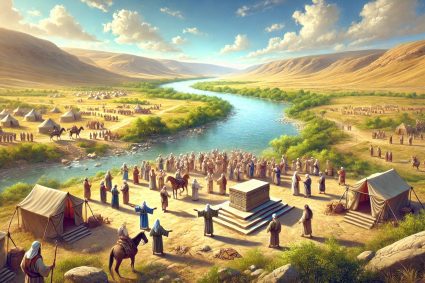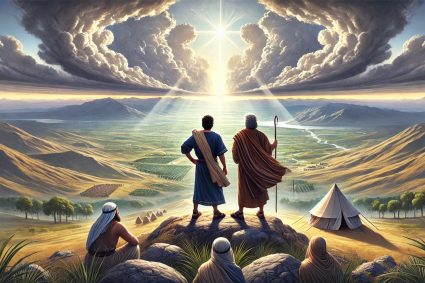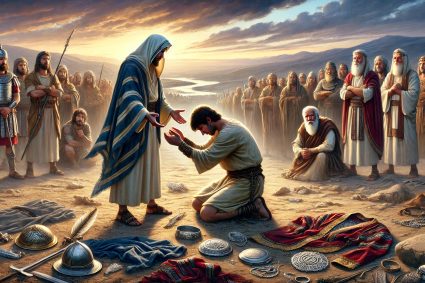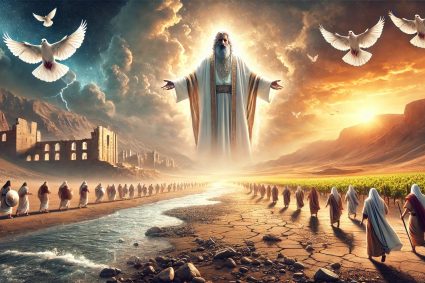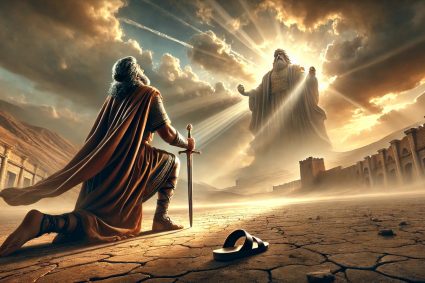
Series THE GOD OF LOVE AND JUSTICE with Pastor Mark Finley |
Lesson 7.The Problem of Evil |
Why God Permits Freedom and How He Ultimately Defeats Evil |
The problem of evil is one of the greatest challenges of faith. Why is there suffering, injustice, and pain in a world created by a loving God? This question has already been posed by the prophets and believers in the Bible. Yet Scripture gives us answers: Evil is not God’s will, but the result of the abuse of free will. God did not create us as machines, but as beings with genuine freedom of choice—a risk He took out of love. Even though we may not understand all the reasons for evil, we can trust that God is just, that He sees our suffering, and that one day He will eliminate all evil forever.
Memory Text: Revelation 21,4 – “ ‘And God will wipe away every tear from their eyes; there shall be no more death, nor sorrow, nor crying. There shall be no more pain, for the former things have passed away’ ”
Content:
7.1 “How Long, O Lord?”
The Question of Suffering and God’s Plan of Redemption
The problem of evil is one of the deepest questions that concerns both believers and non-believers alike. The biblical texts show that even God’s faithful servants often despaired over the injustice of this world, wondering why the wicked prosper while the righteous suffer. Yet at the cross we see that even Jesus experienced this pain when He cried, “My God, my God, why have you forsaken me?” (Matthew 27:46). This shows us that God not only understands suffering, but has Himself borne it. But the cross is not the final word—it is the victory over evil, a promise that suffering will end. Thus, even in our darkest moments, we can look to the hope that Christ has given us.
7.2 “There Are Many Things We Do Not Know”
Trust in God’s Wisdom Despite Unanswered Questions
The Book of Job shows us that we do not have—and need not have—all the answers to the problem of evil. Job suffered greatly and sought to understand why God allowed it, yet God’s answer made it clear that there are many things beyond human understanding. We too do not know everything that happens “behind the scenes,” but that does not mean that there is no meaning. God calls us to trust Him even if we do not comprehend everything. Our limited perspective should not prevent us from building our hope on His love and wisdom. Ultimately, God’s plan of redemption will be fulfilled, even if we cannot understand everything today.
7.3 The Skeptical Theist
Trusting in God’s Higher Ways Despite Unanswered Questions
God reminds us in Isaiah 55:8–9 that His thoughts and ways are far beyond our understanding. Skeptical theism teaches us that we cannot always understand God’s reasons for allowing evil, yet we may still trust that He is good and just. Psalm 73 shows that even the righteous wrestle with the question of the success of the wicked, but the insight gained in the sanctuary offers comfort: God is the righteous judge who will set all things right in the end. Our Adventist understanding of the judgment reinforces this hope, showing that God sees every injustice and will bring about justice in His time. Even if we do not have all the answers now, we can be certain that God’s plan is perfect and that He will ultimately defeat evil.
7.4 The Freewill Defense
Why True Love Cannot Exist Without Freedom
God gave man free will because genuine love and moral decisions are possible only in freedom. Holy Scripture shows that Adam and Eve had a choice—and their decision brought evil into the world (Genesis 2:16–17). Without free choice, we would not be truly human, but merely programmed machines. C. S. Lewis aptly describes it: freedom enables both love and the risk of evil. God did not want robots, but creatures who choose Him out of love. The abuse of free will brought sin and suffering, yet God’s plan of redemption shows that He still liberates us and desires to lead us into perfect communion with Him.
7.5 Love and Evil?
Love and Freedom—The Divine Risk and the Overcoming of Evil
God is love, and true love can exist only if there is freedom—but it is precisely this freedom that makes evil possible. Had God forcefully suppressed evil, He would have destroyed the trust necessary for love. Instead, He reveals His character of love to expose Satan’s deception. Romans 8:18 reminds us that present suffering is not comparable to the glory to come. God sees the end from the beginning and knows that evil will not have the last word (Revelation 21:3–4). Jesus’ sacrifice shows that He did not withhold this freedom from us despite its high cost—a testament to His infinite love.
7.6 Summary
Freedom, Suffering, and God’s Ultimate Victory
The problem of evil raises many questions, also posed in the Bible: Why does God seem distant when injustice prevails? Scripture shows that although God hates evil, it is a consequence of the free will He has given us out of love. Had evil been eradicated immediately, trust in God’s love would have been undermined. Yet God did not ignore evil—He Himself suffered on the cross to defeat it. Romans 8:18 and Revelation 21:3–4 assure us that present suffering is not permanent and that God will renew everything in the end. Our hope lies in His justice and the promise that evil will ultimately be defeated.
(Visited 8 times, 1 visits today)

